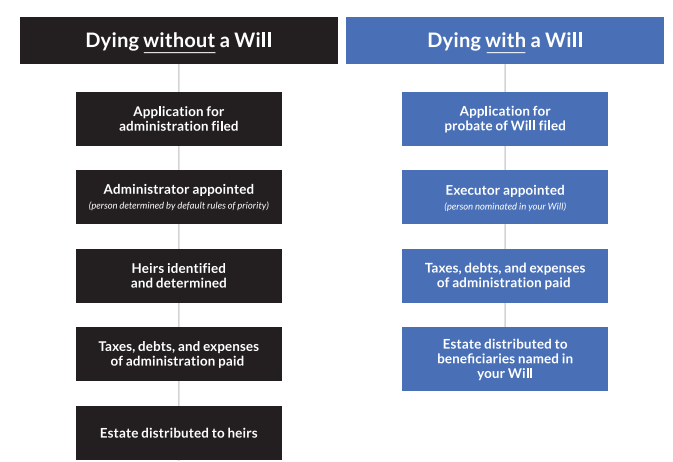Content courtesy of www.trustandwill.com.
Click here to get 10% off an Estate Plan (Will and Trust and related documents).
When someone dies without a Will, they said to have died “intestate”. In this case, their assets will be distributed (with extra cost and time) according to state law, which varies by state.
When you pass away, your estate undergoes probate, a potentially lengthy and expensive process. It is also a public process. Having a Will/Trust reduces probate’s uncertainty by specifying who should oversee your estate and receive your property. Without a Will/Trust, the court handles asset distributions, debt payment, tax settlement, and resolves any disputes that arise over the distribution of assets.t rules determine estate administration and property
In the absence of a Will/Trust, default rules determine estate administration and property recipients. Usually a deceased person’s spouse and/or children inherit in intestate cases, However, without these relatives assets may go to other family members or even to the state.
Creating a Will/Trust provides clear guidelines, ensuring your assets are distributed according to your wishes, bypassing the probate process, and simplifying the process for your loved ones.

